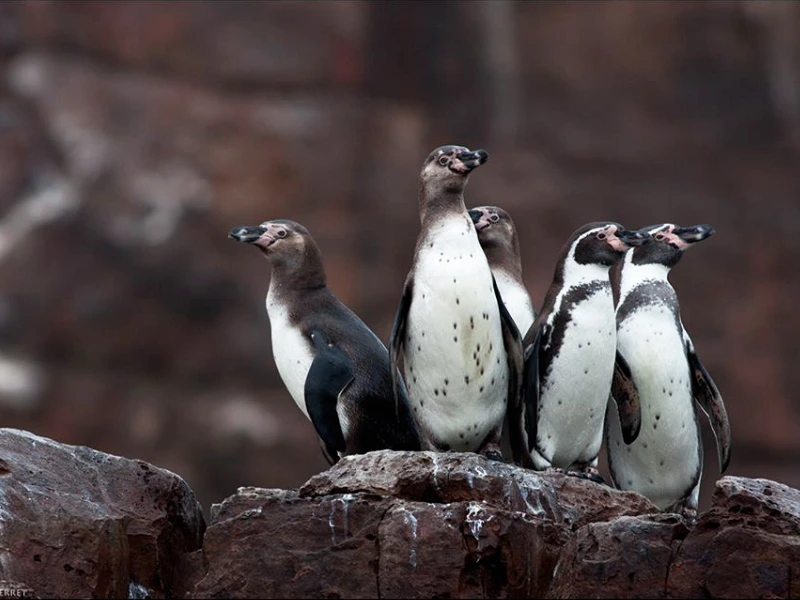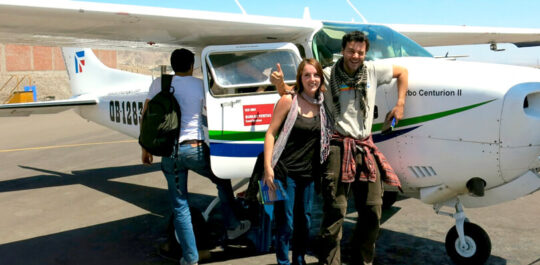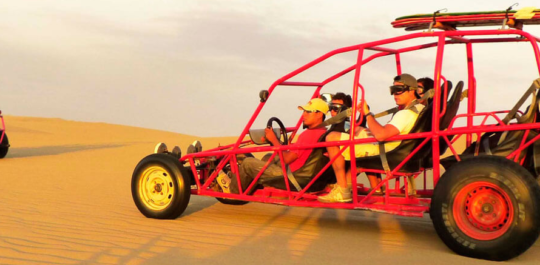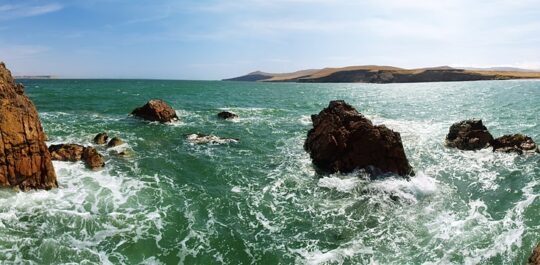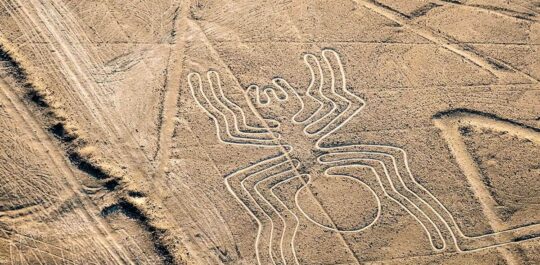Dreamy Tours – Ica and Nazca are two incredible destinations in Peru. Come discover in 2024 the natural, cultural and marine beauty of this paradise on Peru’s coast.
In Ica you’ll find a desert full of experiences. Let’s start with the most popular ones: a speedboat ride to the Ballestas Islands in Paracas, a flight over the lines and geoglyphs of the Nazca and Palpa Lines, an afternoon by the Huacachina Lagoon, sandboarding on Huacachina’s dunes, or a luxury picnic in the desert.
If you’re looking for more adventure, you can visit the Lost Canyon of Ica, tour the pisco route through Ica’s vineyards like Hacienda Tacama, or explore history at Hacienda San José in Chincha.
All experiences in Ica and Nazca are amazing and unique, making this city of Ica and its surroundings one of the top tourism destinations in Ica.
Best Tours in Ica
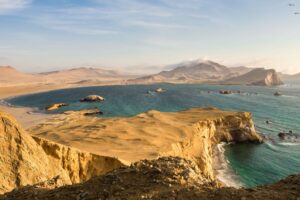
Paracas – Full-Day Tour
Enjoy this beautiful experience in the Nazca airs. Fly over and learn about these impressive figures. You have no more excuses.
See More
Ballestas Islands – Full-Day Tour
Thousands of seabirds fly between the Ballestas Islands. Sea lions are likely to approach the boat and many penguins will be seen.
See More
Ballestas Islands, Ica Vineyards & Huacachina
Thousands of seabirds fly between the Ballestas Islands. Sea lions are likely to approach the boat and many penguins will be seen.
See More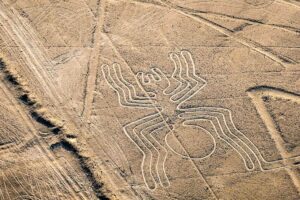
Nazca Lines Flights Tour
Enjoy this beautiful experience in the Nazca airs. Fly over and learn about these impressive figures. You have no more excuses.
See More
Sandboarding & Dune Buggy – Full-Day Tour
Adventure Tour Buggie & Sandboard, Enjoy a delicious pisco, ride in tubulars or try the best tiles in Peru, tours.
See MorePackages and Offers in Ica
Questions
Frequently asked questions from our customers
Huacachina Lagoon
The Huacachina Lagoon is an oasis located just 5 km from Ica city. Its emerald green waters come from underground currents.
The best time to visit is between February and March, though it’s ideal year-round.
Where is Nazca located?
Nazca is in the province of the same name, in the Ica region. It’s famous for the Nazca Lines, its main square, and warm weather throughout the year.
Nazca Climate:
Summer temperatures exceed 35°C (Jan-Mar), while winter lows hover around 9°C. Nazca is known as the “city of eternal summer.”
Top Tourist Attractions in Ica:
Key destinations include: Huacachina Lagoon, Ballestas Islands in Paracas, the Lost Canyon, Paracas beaches, and Hacienda San José in Chincha.
What are the Ballestas Islands and how to visit?
The Ballestas Islands in Paracas are a group of islands with rich marine biodiversity. Reach them via speedboat tours departing from Paracas dock.
Beaches:
- Playa de la Mina: In Paracas National Reserve, its turquoise waters contrast with sandy hills.
- Playa Roja: Famous for its unique red sand.
- Yumaque Beach: Known for striking rock formations.
Best time for Huacachina dune buggies?
Dune buggies can be enjoyed year-round, but summer offers optimal weather.
What is the Pisco Route in Ica?
A gastronomic/cultural tour of Ica’s wineries showcasing pisco production, with tastings included.
Is travel from Lima to Paracas/Ica safe?
Yes, routes are safe when using formal bus companies or Ica tour agencies.
Top Vineyards in Ica:
Notable options: Tacama Vineyard, Hacienda Tacama, Hacienda San José, and other Pisco Route wineries.
How to get from Lima to Ica?
- By bus: 6.5 hours via Panamericana Sur highway
- By air: Fly Lima to Paracas, then transfer to Ica
Family-friendly tours in Ica:
Options include Huacachina tours, Ballestas Islands visits, vineyard tours, and mild desert activities.
Most beautiful Paracas beaches:
Top choices: Playa Roja, Playa de la Mina, and Yumaque Beach within the reserve.
Best travel season for Ica/Nazca?
Spring or winter (Jan-Dec) are ideal—sunny with minimal rain.
Average temps: 25°C (Jan) to 23°C (Jun)—perfect for sandboarding, Pisco tours, and sightseeing.
Lima to Ica/Nazca routes:
- By land: 6h32m via Panamericana Sur (446.6 km), passing Huacachina and vineyards
- By air: Fly to Paracas for Ballestas Islands/Canyon tours
Pack light: comfortable clothes, hat, sunscreen, and a jacket for evenings. Closed-toe shoes recommended for sandboarding.
MAP
What to wear in Ica’s desert?
Pack light: comfortable clothes, hat, sunscreen, and a jacket for evenings. Closed-toe shoes recommended for sandboarding.
Airport
Ica has an international airport located in the province of Pisco (Capitán FAP Renán Elías Olivera Airport). This makes it easier to access Ica tours or connect to Nazca and Paracas.
Sand Dunes
The Huacachina sand dunes are a signature attraction in southern Peru. They are perfect for thrilling experiences like dune buggy rides and sandboarding in Huacachina.
Sandboarding
Sandboarding is a must in your travel itinerary. The adventure begins with powerful dune buggies in Ica that speed up the dunes. You can ride standing up or lying down.
When Is the Best Time to Visit the Nazca Lines?
You can visit the Nazca Lines year-round, but the best months are from October to March due to warm weather and clear skies.
The Nazca Lines are believed to be a giant solar and lunar calendar created by ancient Peruvian astronomers. From the sky, you can see shapes like the Hummingbird, Monkey, Spider, and Heron.
What Else Can You Do in Ica Besides Huacachina?
Ica tourism also includes visiting vineyards like Tacama Ica, exploring the Pisco Route, discovering the Canyon of the Lost in Ica, or enjoying the famous Huacachina dune buggies.
How Long Is the Huacachina Sandboarding Tour?
The Huacachina sandboarding tour lasts around 1 to 2 hours, including the buggy ride up to the top of the dunes.
Where Is Paracas and How to Get There from Ica?
Paracas is in the province of Pisco, just 1 hour from Ica city. You can take a bus from Ica to Paracas or book an Ica–Paracas combo tour.
What Can You Do at the Canyon of the Lost in Ica?
The Canyon of the Lost is a unique attraction in Ica, ideal for trekking, taking panoramic photos, and enjoying nature.
What to Do in Paracas Besides the Ballestas Islands?
You can explore the Paracas National Reserve, relax on beaches like Playa Roja or Playa La Mina, and visit local museums.
Where Is Ica Located?
The department of Ica is on the southern coast of Peru. It’s known as the “City of Eternal Sun” and is home to famous vineyards like Tacama Ica and Hacienda San José in Chincha.
Ica Weather
Ica has a warm desert climate, classified as subtropical dry. Average summer temperatures reach 27°C (81°F), and winter averages around 18°C (64°F). Typically, highs don’t go above 30°C (86°F) and lows rarely drop below 8°C (46°F).
A unique feature of the region is the strong winds called “paracas,” which stir up large clouds of sand, especially around the Huacachina dunes.
What to Do in Chincha and the History of Hacienda San José
In Chincha, you can visit the Hacienda San José, known for its colonial tunnels, traditional cuisine, and historical ties to Peru’s colonial era.
What to Visit in Ica in Just One Day?
You can take an Ica tour that includes the Regional Museum, the Huacachina Lagoon, vineyards along the Pisco Route, and adventure activities in the dunes.
How Long Does It Take to Visit the Nazca Lines?
The Nazca Lines flight lasts about 30 to 40 minutes. It’s a highly recommended activity on any Ica–Nazca tour.
Where to Stay? Are There Good Hotels in Ica Near Huacachina?
Yes, there are many hotels in Ica near the Huacachina Lagoon, ranging from budget-friendly hostels to resorts with pools.
What’s Included in a Full Day Tour in Ica?
A full-day Ica tour includes visits to top tourist attractions: Huacachina tours, dune buggies, sandboarding, wine and pisco tasting, and depending on the itinerary, connections to Paracas (Ballestas Islands) or Nazca.
Guides
Ica Travel Guides
Ica and Nazca are two incredible destinations in Peru that you must discover in 2025.
This paradise on the southern coast of the country blends natural, cultural, and marine beauty—perfect for tourism in Ica.
The city of Ica offers endless experiences: boat tours to the Ballestas Islands in Paracas, scenic flights over the Nazca Lines, magical afternoons at the Huacachina Lagoon, adrenaline-filled dune buggy rides and sandboarding, and visits to vineyards like Tacama Ica along the traditional Pisco Route.
Every experience in Ica and Nazca is unique and will leave you with unforgettable memories.

Transport
Transportation in Ica
At Dreamy Tours, we’ve partnered with Viamed Perú to ensure safe, comfortable, and efficient transportation for every trip throughout 2025. Together, we provide reliable transfers from the city of Lima to Ica and Nazca, making it easier to reach top attractions like the Huacachina Lagoon, the Ballestas Islands in Paracas, and the Canyon of the Lost.
This way, you can enjoy your adventure through southern Peru to the fullest—stress-free and worry-free.

Accommodation
Accommodation in Ica
Find your new favorite place to stay in Ica and Nazca, Peru.
At Dreamy Tours, we offer a variety of lodging options in Ica, ranging from standard to superior categories. All our accommodations are located in the best areas of Ica city, with easy access to top attractions like the Huacachina Lagoon, the Canyon of the Lost, and the Ballestas Islands in Paracas.
Plus, you’ll enjoy convenient access to local transportation and a wide range of entertainment options in Ica.
Start planning now!
Reviews
Experiences that speak for themselves
Get to know Ica through our blogs
What to See and Do in Ica in 2025?
Here you’ll find useful information, fascinating stories, and top recommendations to make the most of your visit to the city of Ica. Discover the main tourist attractions in Ica, adventure activities like dune buggies in Huacachina, the Canyon of the Lost, the Ballestas Islands in Paracas, and much more about tourism in Ica.
 Blogs - ica
Blogs - ica
Buggy and Sandboarding Tour in Huacachina | Desert Adventure
We are part of the Dreamy Tours team, and we created this complete guide to help you understand exactly what to expect from the buggy and sandboarding...
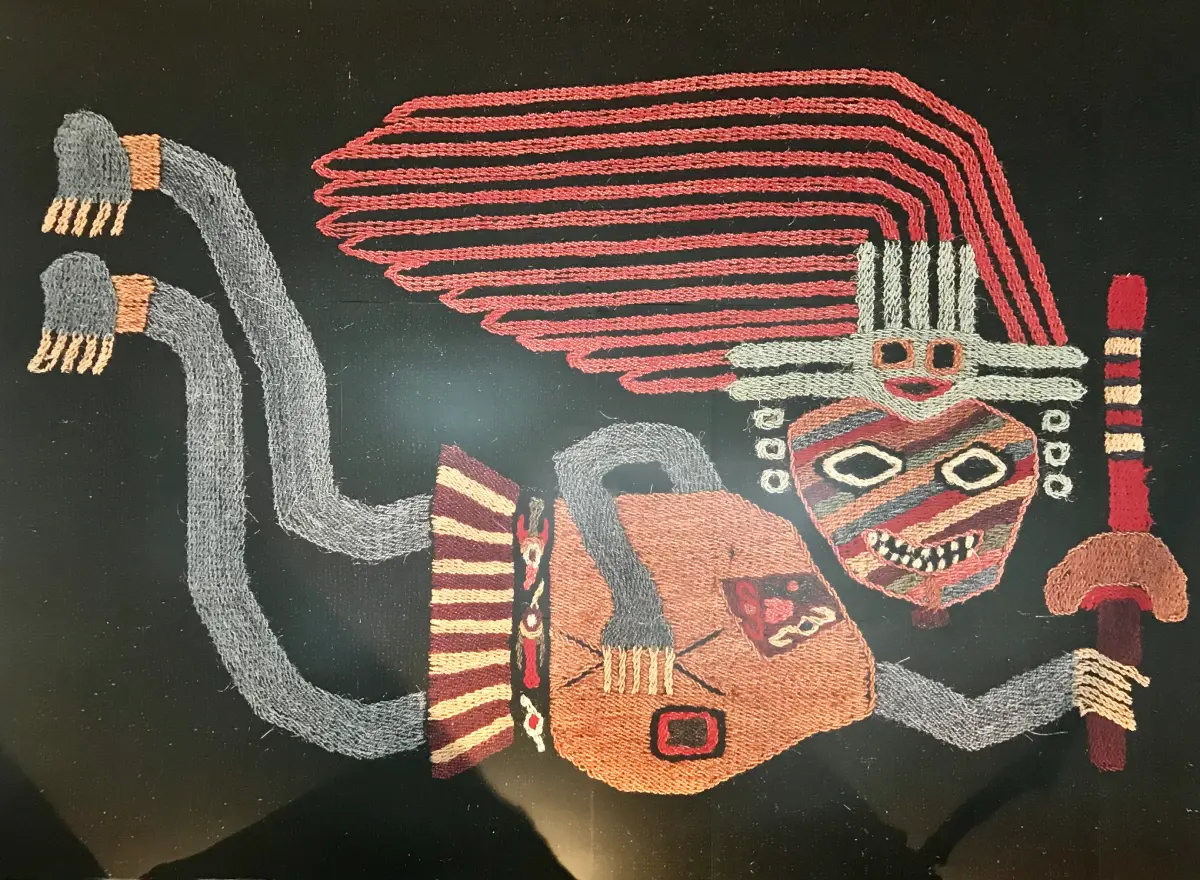
Discover the Paracas Culture: The Ancestral Legacy of the Peruvian Coast
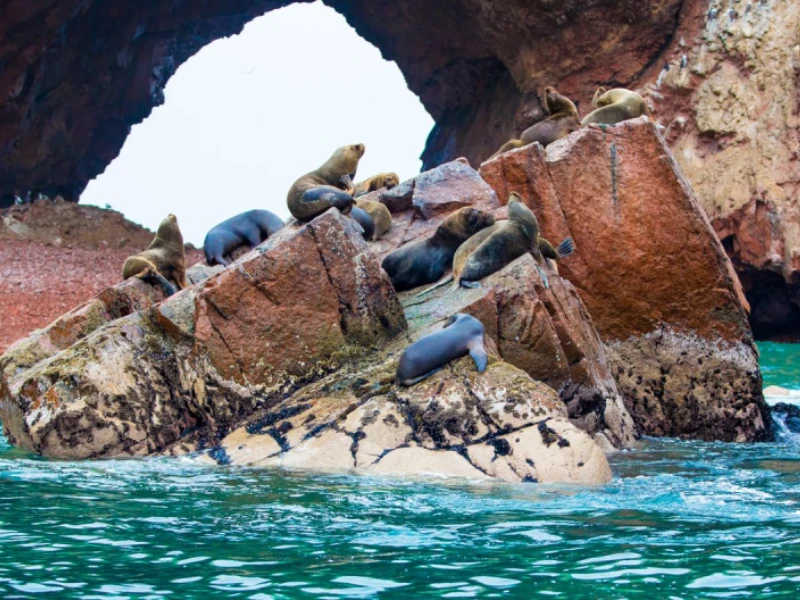
Ballestas Islands Paracas: Adventure from Lima
